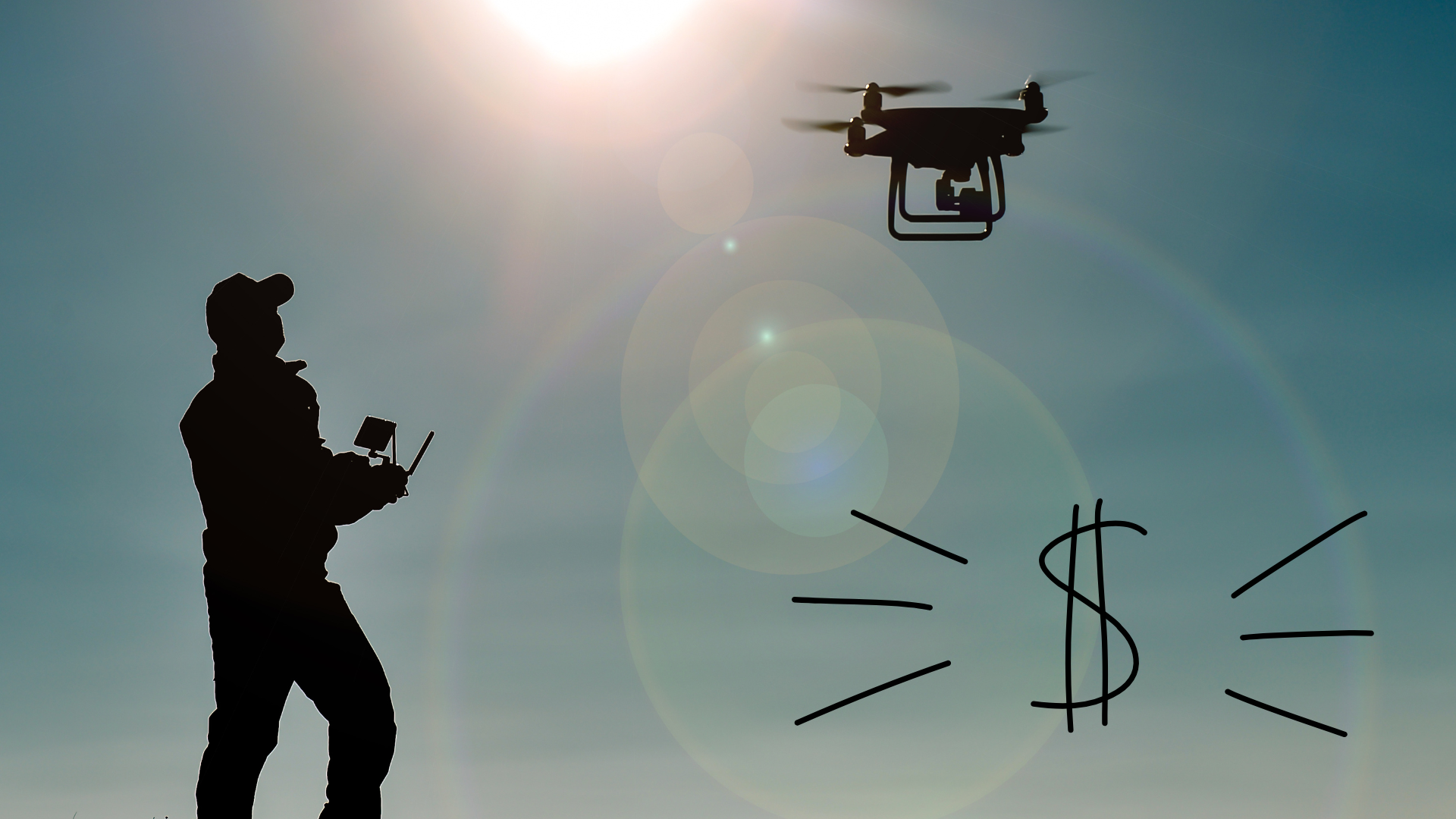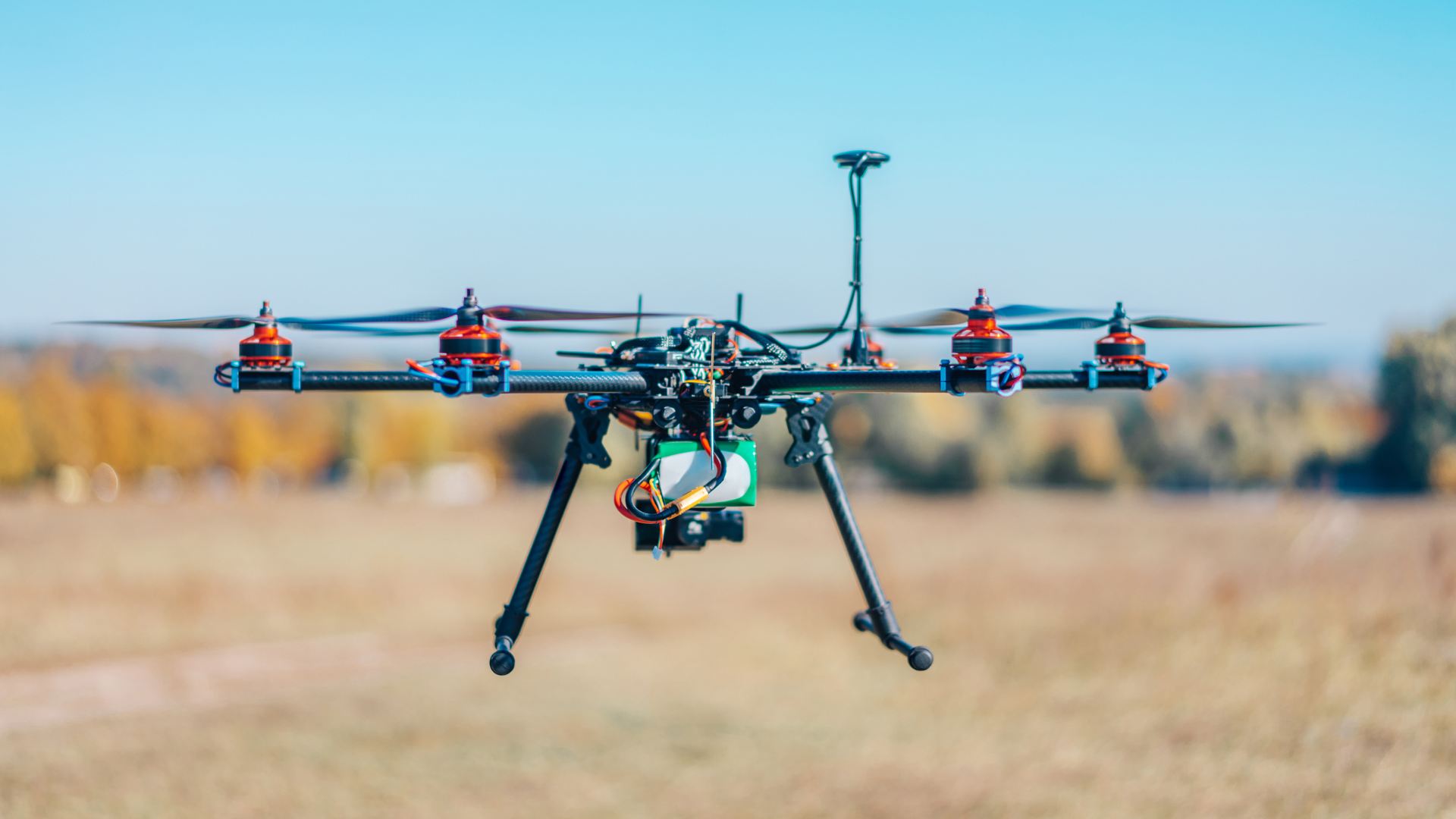P. Delgado (UMILES University): “It is rewarding to find missing persons and save lives on the spot”.
Pablo Delgado is an instructor of the Drone Pilot and Security and Emergency (SEM) Professional Course at UMILES University, a pioneer school in UAVs education that has the largest portfolio of courses in Europe. Working in emergency devices has always been his vocation. That is why Pablo decided to train as a drone pilot and then as an instructor to turn his passion into his profession. Now, he trains the future generation of pilots and in this interview he gives some keys for those who, like him, want to work in a booming sector.
How did you become interested in becoming a drone pilot and especially in rescue operations?
I started with the subject of emergencies because I always wanted to be a firefighter and dedicate myself to emergencies. That’s where the desire to work in this sector came from. When I could not achieve my passion, which was to be a firefighter, I focused my efforts on working in the field of emergencies. In my spare time, I did extreme sports in the mountains, I took mountain rescue certificates… I was always aiming for what I wanted to achieve.
On the other hand, being a drone pilot started as a hobby. Over time, I saw the opportunities it offered, especially in the field of emergencies, and that’s when I began to professionalize and invest time and money to prepare myself with the best professionals and trainers I knew.
Today, I am in the company that for me is the best in Spain, training new pilots in all aspects. On the one hand, instruction and on the other hand, emergencies.
Whoever wants to dedicate themselves to this, what should they study?
Before, there were not many specialized companies, and above all, there was no complete specialization. Nowadays, there are companies that offer everything, but there are not many and almost none of them offer complete training. However, UMILES offers training for all professionalization. In my case, it is emergencies and trainings and there are many hours of internships. I would go for a company that gives me this complete training so that I don’t have to look for other complementary courses. I would go to the best professionals, as there are here, with Firefighters, Civil Protection, 061 personnel… They teach you, in addition to flying the aircraft, to work within an operation. UMILES training is very complete, I would say the most complete.
What advice would you give to a pilot working for the first time in a security and emergency operation?
Keeping a cool head is fundamental. It’s not easy, because there may be families around, people telling you things… But you have to keep the serenity that a rescue requires and dedicate yourself to what you have in front of you so you don’t make any mistakes. At that moment, it depends on your work whether that person lives or dies, so you have to be very focused.
It is very important that the members of the rescue team are perfectly coordinated, isn’t it?
That’s right, coordination is paramount. Not only for you, but also because you can be alerted by a third person, a lifeguard or any other member of the team. Everyone, with their own tools, intervenes in these rescues. In the end, I do my job and I do it well and you do your job and you do it well, and that is teamwork. It’s a gear that, if there’s too much of a rush to get there and one of the team members fails, we fail.
Does that translate to UMILES students now?
Correct, not only in the field of emergencies, because in UMILES there is a very wide range in any of the professionalization in terms of drone work. Obviously, in my branch, which would be emergencies, they are instructed, not only theoretically, but they are taught at the level of attitude, organizational, theoretical, practical, and tips to keep a cool head when working. In these jobs, no matter how many years you have been working, you are always tense because there are moments when you cannot fail. Here you are taught to keep a cool head in spite of the circumstances, to overcome any obstacle that you may encounter in the operation, etc.
What advantages do you think that drones provide when it comes to finding missing persons compared to an operation that lacks them?
There are many advantages. This will depend on the type of search, whether it is a direct emergency, or in the search for a person we do not know where he is. In the search for people, an aircraft will give us a series of advantages that will depend on several factors, whether it is a daytime or nighttime search, the morphology of the terrain, etc. Depending on each type of operation, for example, in a night search, we can use night vision cameras, which is another advantage of using drones. It will give us information on the type of vegetation, fauna, etc. We have information in real time. We can use public address, thermal cameras… So, I think it is a tool that has become essential. For example, in an area with very lush vegetation, a thermal camera would allow us to locate the body heat and find the victim. It is a tool that, for those who do not use it, it will be due to lack of resources or lack of knowledge, but it will have to become essential.
What is the best type of drone for this type of operation?
We have an advantage, which is that we have worked with and tested most of the emergency aircraft in the national and international market. As we have tested them, we know what their shortcomings and needs are. Therefore, we have opted for the development of a rescue aircraft with all this information. SATURNO is an aircraft one hundred percent developed by UMILES and has the capacity to be equipped with many types of cameras, thermal and night vision cameras, and different payloads, such as life jackets, megaphones, LED lights, anti-collision sensors… I believe that, nowadays, it is the one with the best complements in the market.
What are the most complicated rescue and emergency operations you have experienced?
Well, there have been several… They are all complicated. Search operations are longer and, therefore, more complicated. Sometimes there are days and days of searching, many hours, difficulties in the terrain, weather conditions, physical exhaustion…
In emergencies on beaches, the complication is that, apart from the stress because you have to react very quickly, you have the added stress of family and friends, who are probably around and on top of you. Time is very short. It’s a matter of seconds whether a person is dead or alive, and that practically depends on your job.
It’s rewarding to find missing people and save lives on the spot. Those are the moments when you realize that you are doing it right and you are obviously saving a life with your work.
![¿Se puede volar un dron con lluvia? [Tus dudas resueltas]](https://umilesgroup.com/wp-content/uploads/2024/03/¿Se-puede-volar-un-dron-con-lluvia-Tus-dudas-resueltas.png)

